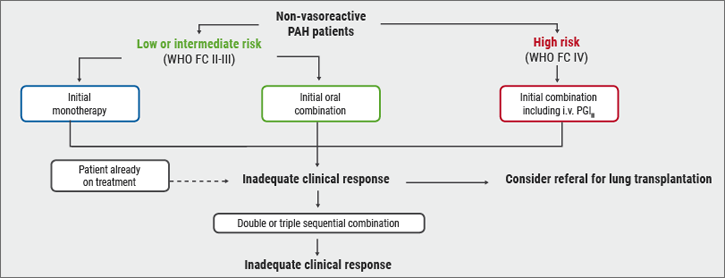PCD is a rare condition. The signs of this congenital disease start in neonates or young children, and it progresses throughout adulthood. Symptoms include chronic rhinosinusitis, recurrent otitis media, conductive hearing impairment, chronic productive cough, as well as infection and inflammation of the lower respiratory tract [1]. Currently, data on PCD is still scarce.
Dr Helene Kobbernagel (Rigshospitalet Copenhagen, Denmark) presented the results of the randomised controlled, European, multicentre BESTCILIA trial [2]. The trial investigated the efficacy and safety of azithromycin as a maintenance therapy to prevent respiratory exacerbations of PCD. Participants (n=90), aged 7-50 years, were randomised to receive either placebo (n=41) or azithromycin at a dose of 250 mg or 500 mg, depending on their body weight being < or ≥40 kg (n=49) for 3 times a week over 6 months. In addition to the rate of exacerbations, the sputum was investigated for pathogenic bacterial species.
The patients taking azithromycin suffered from about half the amount of exacerbative episodes than the patients receiving placebo (rate ratio 0.46; P=0.006). Furthermore, evidently less pathogenic sputum bacteria were found compared with placebo (rate ratio 0.39; P=0.0002). Values for lung function, hearing levels, or quality of life were not different between the groups. Overall, the treatment was well tolerated, although the patients in the azithromycin group presented with more gastrointestinal symptoms.
“Our results show that azithromycin is safe for patients with PCD and that it could offer an effective maintenance therapy, reducing ill-health and helping children and adults get on with their daily lives,” commented Dr Kobbernagel. In her opinion, a next question will be whether a treatment longer than 6 months is still safe and could also help to preclude irreversible lung damage.
- Kobbernagel HE, et al. BMC Pulm Med. 2016;16(1):104.
- Kobbernagel HE, et al. RCT5102. ERS 2019, 29 Sept-2 Oct, Madrid, Spain.
Posted on
Previous Article
« Fever during immunotherapy for NSCLC associated with shorter PFS Next Article
Letter from the Editor »
« Fever during immunotherapy for NSCLC associated with shorter PFS Next Article
Letter from the Editor »
Table of Contents: ERS 2019
Featured articles
Letter from the Editor
Interview with ERS president Prof. Tobias Welte
Holistic View on Asthma
Holistic view on asthma
COPD Management
COPD patients derive clinical benefit from β-blockers
COPD patients harbouring Pseudomonas Aeruginosa face high risk of hospitalisation
One blood eosinophil count is sufficient to guide ICS therapy
Female COPD patients frequently suffer from anxiety and depression
Dual bronchodilation improves ventilation dynamics in COPD patients
Vaping
Vaping impairs innate immune response of the airway
Alternative nicotine delivery products: no help in smoking cessation
Air Pollution
Pregnant women and their offspring: a high-risk group for air pollution
Taxi drivers exposed to highest levels of black carbon pollution
Infectious Respiratory Disease: the Role of Vaccines
Vaccines show multiple positive effects with respect to respiratory health
Pneumococcal vaccines: an effective way to reduce COPD hospitalisations
Interstitial Lung Disease
Antifibrotic therapy slows disease progression in ILD
Reduction of FVC decline in systemic sclerosis-associated ILD
Registry confirms nintedanib efficacy under real-life conditions
Best of the Posters
Fever during immunotherapy for NSCLC associated with shorter PFS
Smart shirt as a device to measure tidal volumes in real-life setting
Exercise with virtual reality beneficial for COPD patients
NSCLC: A new way to evaluate hilar and mediastinal lymph nodes
COPD patients do not benefit from azithromycin therapy longer than a year
Novel Developments in Infectious Disease
Long-term azithromycin decreases exacerbations in primary ciliary dyskinesia
Predicting community-acquired pneumonia outcomes by microRNA testing
Pulmonary Vascular Disease
Balloon pulmonary angioplasty for inoperable chronic thromboembolic pulmonary hypertension
Related Articles

November 7, 2018
Risk stratification

February 3, 2022
The scope of remote healthcare in hypertension and hyperlipidaemia
© 2024 Medicom Medical Publishers. All rights reserved. Terms and Conditions | Privacy Policy
HEAD OFFICE
Laarderhoogtweg 25
1101 EB Amsterdam
The Netherlands
T: +31 85 4012 560
E: publishers@medicom-publishers.com

